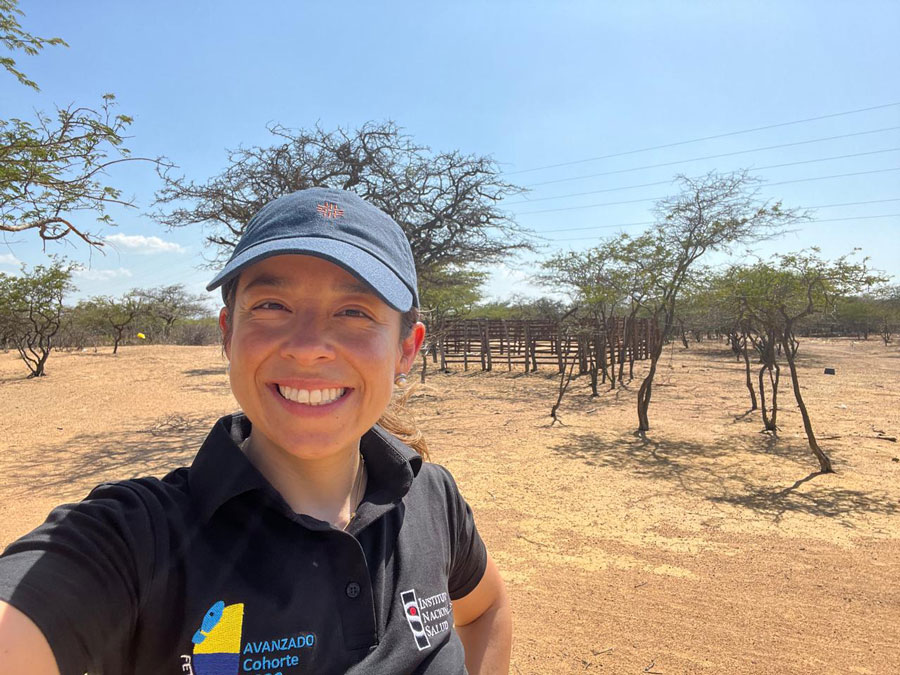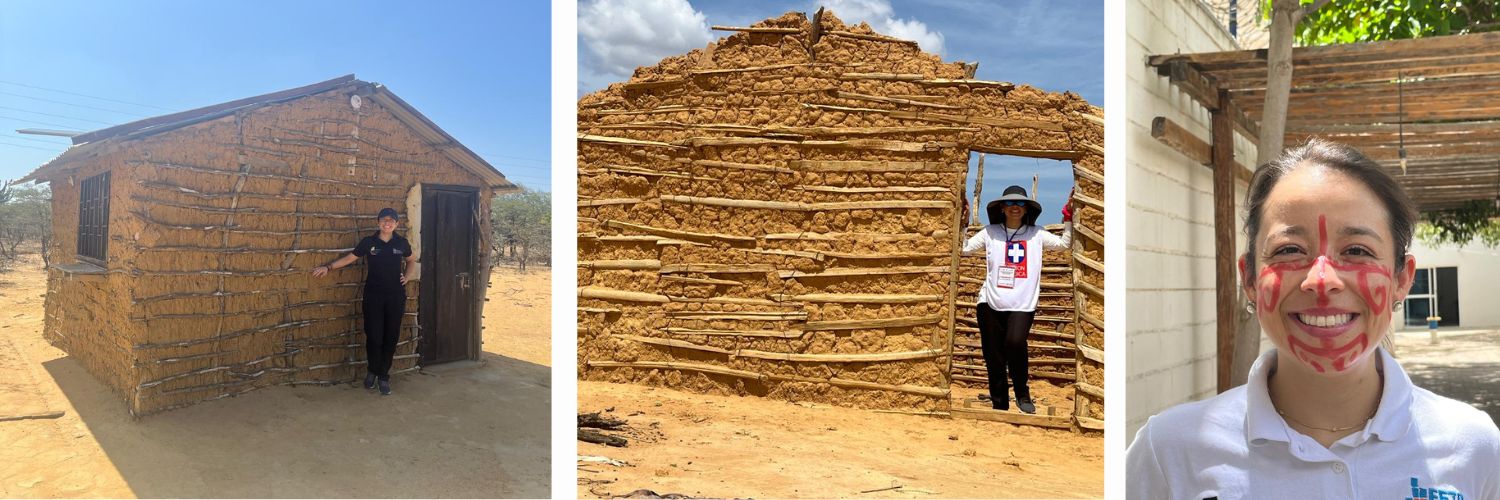First Person: Study on child and maternal nutrition in Colombia

First person is an occasional series, providing firsthand accounts of outreach programs involving the McGovern Medical School community. This issue features Andrea Ramirez Varela, MD, PhD, MPH, assistant professor in the Department of Pediatrics and the UTHealth Houston School of Public Health and trainee at the 2023-25 Advanced Field Epidemiology Training Program at Colombia’s National Health Institute FETP-INS.

I recently contributed to a pivotal projected titled “Research on the Nutritional Status of Children Under 5 and Pregnant Women in the Municipality of Uribia, La Guajira, Colombia 2024.” I participated in this field work with 36 Intermediate and 17 Advanced Course Field Epidemiology Training Program colleagues. I was part of the group that went to Uribia in La Guajira, and another team went to Puerto Carreño in Vichada.
Nutrition is a fundamental right of every child, according to the text approved by members of the United Nations (UN) in 1990, known as the Convention on the Rights of the Child. Many factors can influence nutrition and agriculture, such as food prices, climate change, and dietary patterns. If not controlled, these factors could have undesired effects on the food security of the population in the future.
Child malnutrition in Colombia’s indigenous communities, especially among Wayuu children in La Guajira, is a critical issue requiring urgent attention. Studies reveal a high prevalence of acute and chronic malnutrition among Wayuu children under 5 years old. These alarming rates indicate not only a public health crisis but also a significant obstacle to the socioeconomic development of these communities.
Uribia, often referred to as the Indigenous Capital of Colombia due to its significant Wayuu population (93.3%), spans 8,200 square kilometers and is home to 195,532 residents. The region is characterized by extreme arid conditions and high temperatures, presenting substantial challenges in child nutrition due to its unique sociodemographic, epidemiological, cultural, and territorial characteristics.

The study, conducted in collaboration with Action Against Hunger, UNICEF, and FETP-INS, utilized the SMART (Standardized Monitoring Assessment of Relief and Transitions) methodology. This methodology, developed by a Technical Advisory Group of experts in epidemiology, nutrition, and demography, and endorsed by global partners such as the CDC, university, the United Nations, and NGOs, is the gold standard for nutrition and mortality surveys.
In August 2024, the FETP-INS team, in collaboration with Action Against Hunger and UNICEF, conducted a nutritional emergency assessment using the SMART methodology.
The main objective was to evaluate the nutritional status of children aged 0 to 59 months and pregnant women, as well as the food security conditions in the municipalities of Uribia and Puerto Carreño during the study period in 2024. The specific objectives were to estimate the prevalence of malnutrition in children aged 0 to 59 months and pregnant women; assess the dietary diversity; describe the coping strategies for food access used in households; estimate the vaccination coverage for measles, diphtheria, tetanus, and pertussis (DPT) in children under 5; characterize aspects related to access to water, sanitation, and hygiene in households; and determine the relationship between nutritional status and food security, vaccination coverage and access to water, sanitation, and hygiene in households.
The study employed a cross-sectional survey with anthropometric assessments and randomized cluster sampling to ensure representative coverage.
The results of this study will be published in the coming months by UNICEF and other partners. The adaptation of the SMART methodology in Uribia and Puerto Carreño highlighted the importance of addressing local geographic, cultural, ethical, and contextual factors to ensure successful implementation. By incorporating local knowledge and practices and emphasizing strong communication and coordination, the methodology can be effectively adapted for similar settings in future emergency assessments.
This research underscores the critical need for tailored approaches in addressing nutritional challenges in diverse and vulnerable populations, paving the way for more effective interventions and policies in the future.
For more information on the project, contact [email protected]